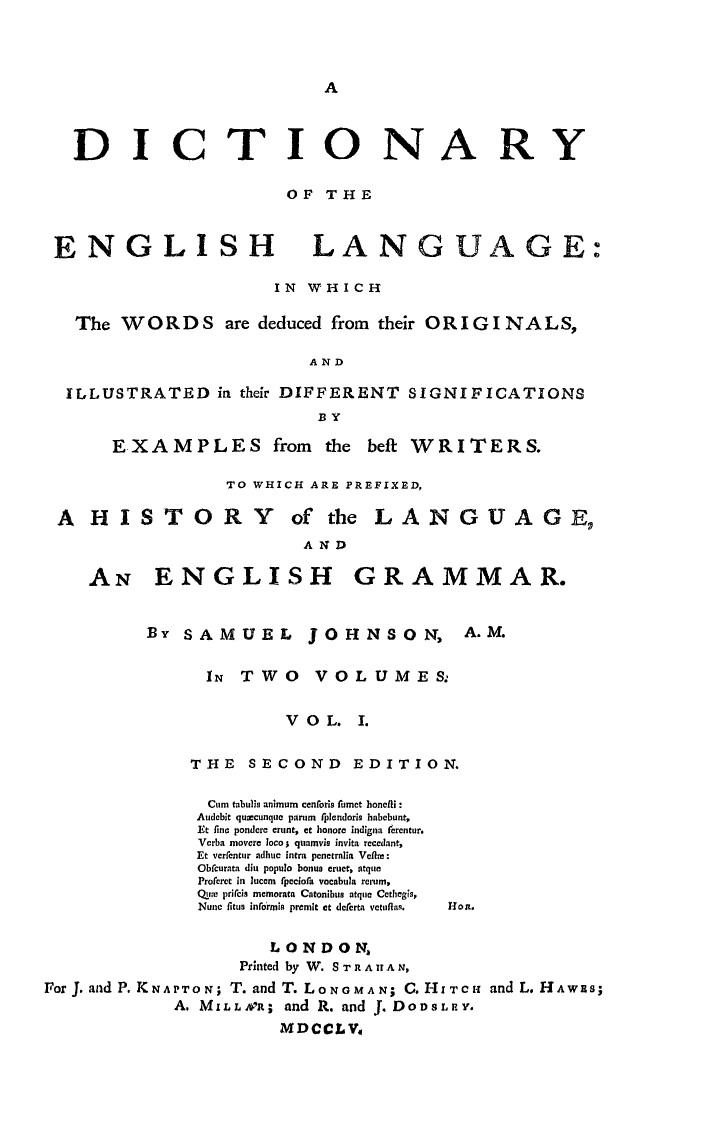 One way that this search manifested itself was in language. In 1755 Samuel Johnson published the first modern dictionary in English. Due to the explosion of printing and rising rates of literacy books, pamphlets, and even newspapers were becoming more available to the public. With this came the need to have some kind of order in grammar, definition, and spelling. Others had published dictionaries in the past but there had been several issues with them. The main problems that came from these dictionaries was, in fact, a lack of order. They were often poorly organized and had little research put into them, usually providing a reference to some of the more "difficult" words, that weren't used very often. At the same time, people were often unsure how to use the words given in early attempts. Johnson's dictionary showed the meaning of words by using them in sentences, described how they were used, and painstakingly ensured that words as thoroughly defined as possible.
One way that this search manifested itself was in language. In 1755 Samuel Johnson published the first modern dictionary in English. Due to the explosion of printing and rising rates of literacy books, pamphlets, and even newspapers were becoming more available to the public. With this came the need to have some kind of order in grammar, definition, and spelling. Others had published dictionaries in the past but there had been several issues with them. The main problems that came from these dictionaries was, in fact, a lack of order. They were often poorly organized and had little research put into them, usually providing a reference to some of the more "difficult" words, that weren't used very often. At the same time, people were often unsure how to use the words given in early attempts. Johnson's dictionary showed the meaning of words by using them in sentences, described how they were used, and painstakingly ensured that words as thoroughly defined as possible.
How fit with the rest of the Enlightenment? To begin, Johnson provided the most comprehensive reference for the English language, and was the dictionary used for the next 150 years. It is also indicative of the growing need for accuracy, order, and the need to know definitions and how to properly use words. It also became a model that some other European countries used.

This comment has been removed by the author.
ReplyDeleteIt is interesting to think about a time in history where a dictionary wasn't common and with that, not even accurate either. Johnson's work went a long way with it being the basis for the next 150 years! This post was a reminder to be grateful for the small conveniences of my day to day life that make it so much easier.
ReplyDelete